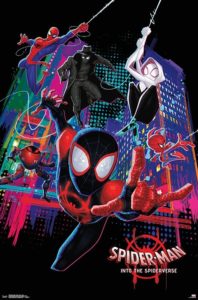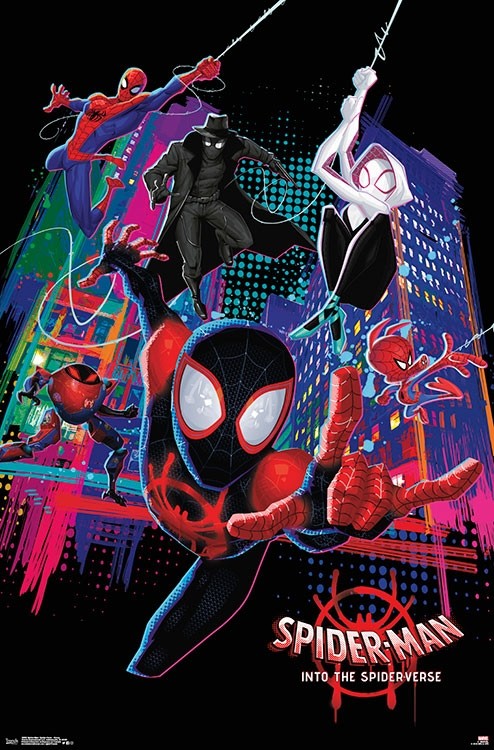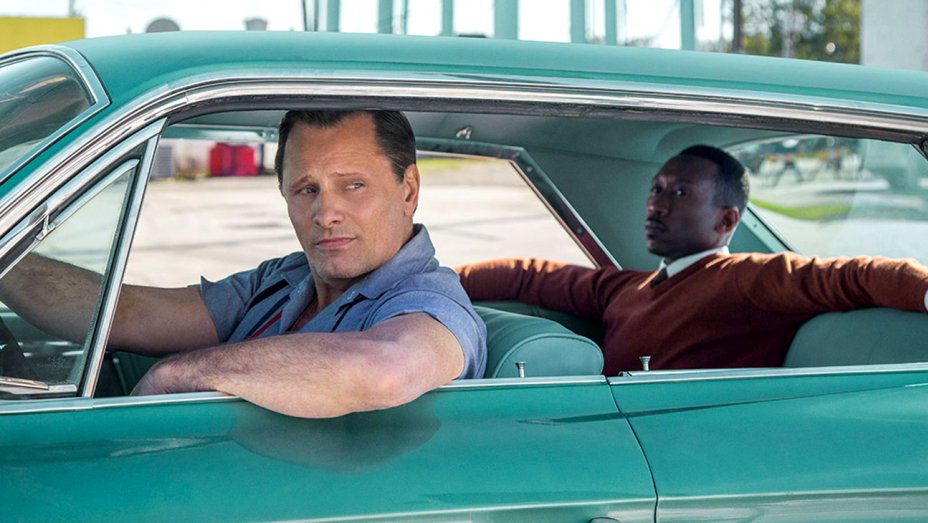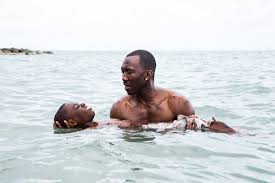Spider-Man: Into the Spider-Verse
Posted on December 13, 2018 at 5:10 pm
A-| Lowest Recommended Age: | Middle School |
| MPAA Rating: | Rated PG for frenetic sequences of animated action violence, thematic elements, and mild language |
| Profanity: | Some mild language |
| Alcohol/ Drugs: | Some references |
| Violence/ Scariness: | Comic book/action peril and violence, characters injured and killed |
| Diversity Issues: | A theme of the movie |
| Date Released to Theaters: | December 14, 2018 |
| Date Released to DVD: | March 18, 2019 |

Just a bit of context: One fascinating element of comic books is that unlike any other story-telling in human history, they portray characters over decades, nearly a century in some cases, with different writers and artists telling their stories and alternative takes like “imaginary stories” with no canonic or precedential import. So, for example, Superman (and Clark Kent) began during the Depression, lived through WWII, the Cold War, the tumult of the 60’s, the yuppie years of the 80’s, went from being a newspaperman to a TV reporter to a blogger, has died and been brought back, has died and been replaced by an alternate version, and has been the subject of several television shows, movies, and even a Broadway musical from the people who brought another comic character to life in “Annie.”
Spider-Man has had one of the most successful superhero movie translations with three starring Tobey Maguire (the terrible third one is tweaked in this film), two with Andrew Garfield, and now another one plus the Avengers movies with Tom Holland. Throughout all of them, he has been the “friendly neighborhood Spider-Man,” the teenager from Queens who lives with his elderly Aunt May, has a crush on Mary Jane, gets bitten by a radioactive spider, and learns that with great power comes great responsibility. Spidey is at the heart of Marvel’s re-imagining of the superhero as young, irreverent, still learning, living in a real place rather than an imagined Gotham or Metropolis, and dealing with real-life problems as well as super-villains. Memorably, he once got paid by check but could not cash it because he had no Spider-Man ID. There are a bunch of alternate versions of Spider-Man, and we get to see many of them work together in this film.
We don’t need to go into the mumbo-jumbo here, do we? Let’s just agree that multiple universes exist and that it is possible that every action or incident splinters off another alternate timeline so that if we could just find a way to hop from one to another, we could find the one where, say, Hitler never assumed power in Germany or where the government regulated sub-prime derivatives and prevented the financial meltdown of 2008. A mob boss in New York known as Kingpin (Liev Schreiber) wants to find the parallel universe, not, for once a super-villain who wants total world domination but because he wants to find the world where his wife was not killed. But his efforts open up portals to other Spider-Men (and a Spider-pig and Spider-girls) who get catapulted into this universe just as our Spidey (Chris Pine) dies (!!!), telling the newest radioactive spider-bite victim, Miles Morales (Shameik Moore) that he has to carry on.
Miles can’t even manage carrying on his regular life. He’s the son of a black cop (Brian Tyree Henry) who considers Spider-Man a lawless disruption and a Puerto Rican nurse mother (Luna Lauren Velez). Miles is under a lot of pressure because has just started at a new magnet school for gifted kids and because he knows his parents would not approve of the time he spends with his uncle Aaron (Mahershala Ali) tagging walls with graffiti.
The style of contemporary animation is usually hyper-reality, with every hair on every head moving and shining just as it does in real life. The style of this film is exuberantly stylized, comic-book style, and it is thrilling to see it translated to screen so skillfully. The interactions with the variations of Spidey are clever and exciting and the movie is serious about its world and its story and characters, but never about itself, which is very comic book-y, too. “Spider-Man: Into the Spider-Verse” is the happiest surprise of this season, a gift that will tingle Spidey-senses in the audience.
Parents should know that this film includes extended peril and action/comic-book style violence, with characters injured and killed (it would be a PG-13 if live action), and some brief schoolyard language.
Family discussion: Which version of Spider-Man do you like best and why? What do you imagine would be your parallel in an alternate universe?
If you like this, try: the live action Spider-Man movies and the comic books




